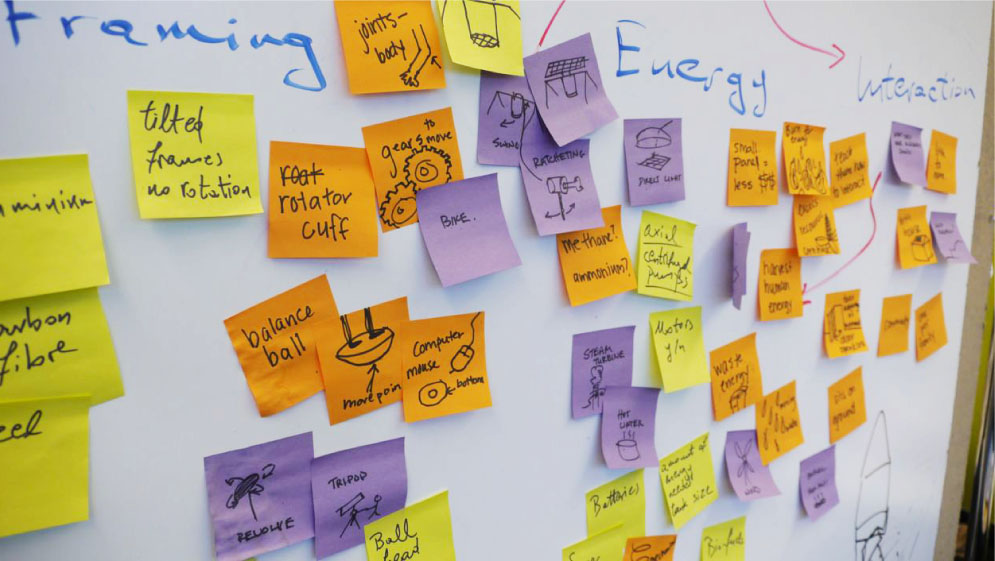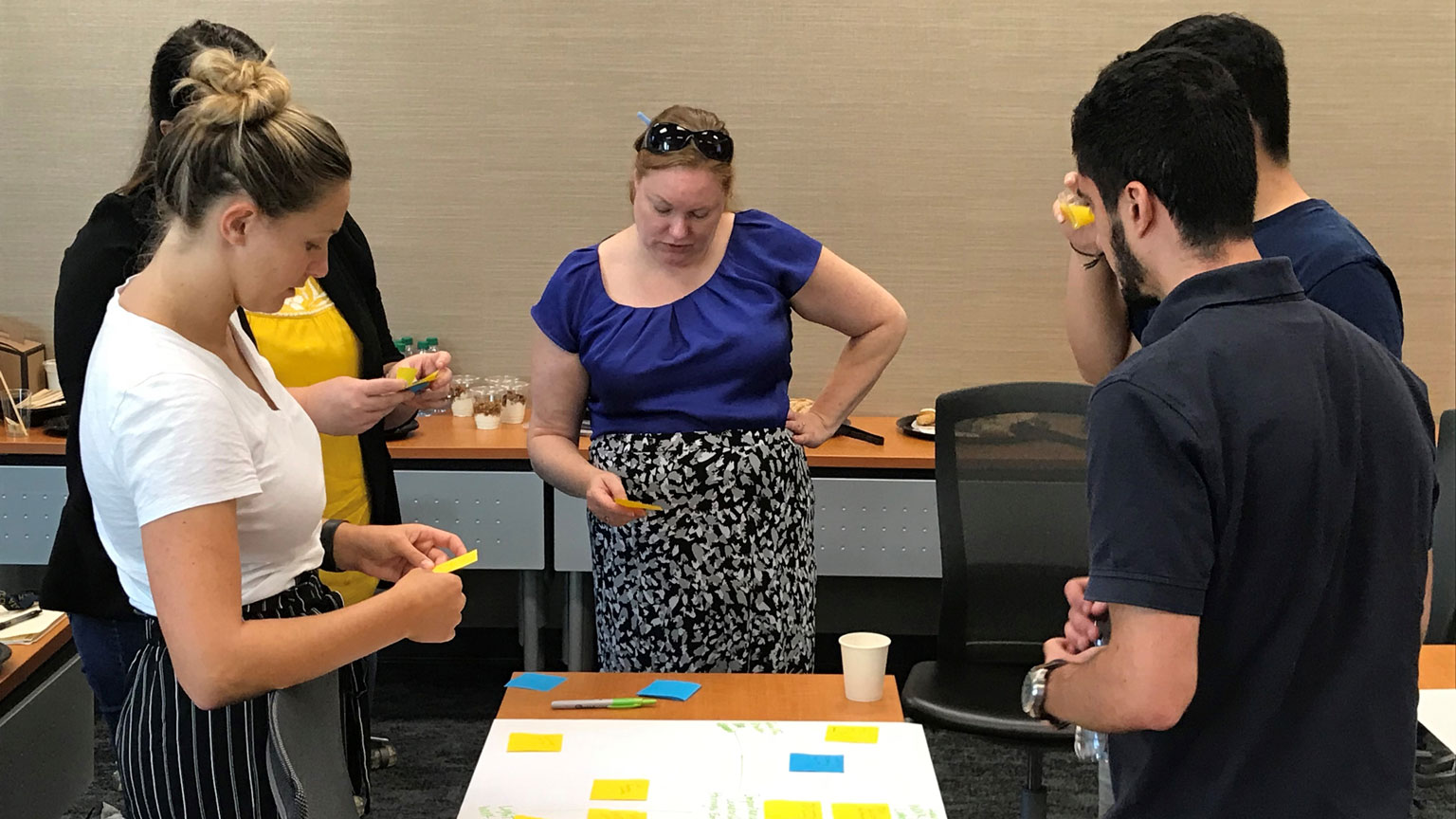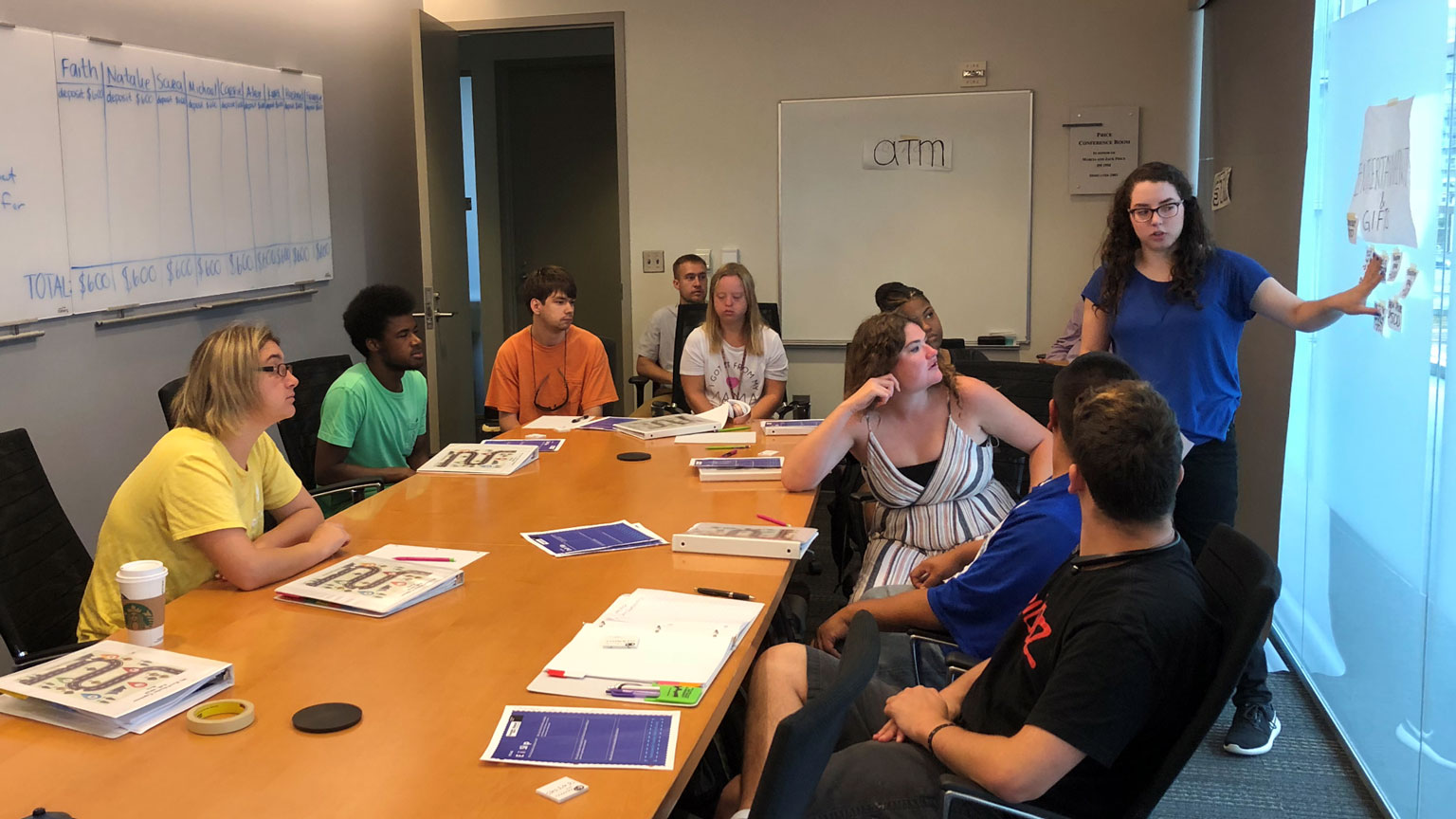
Excel Teaching Workshop Series
Mentors from the Scheller College of Business’ Excel Program wanted a systematic method to improve their students’ classroom experience. As a certificate program at Georgia Tech, Excel offers students with intellectual and development disabilities four years of mentorship to cultivate academic, professional, and lifestyle skills.
The staff´s goal to improve student learning outcomes brought Excel and Design Bloc together. The result was a four-part intensive workshop series in applied design behaviors and the design process. Excel mentors gained the skills to improve the program by understanding their environment through the student’s point of view.

